Fijian strongman Sitiveni Rabuka back to take on China
China’s growing influence in the South Pacific will take a king hit if former PM Sitiveni Rabuka returns to power.
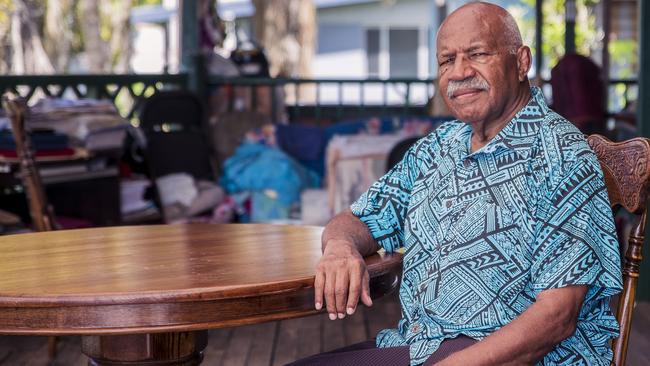
China’s growing influence in the South Pacific will take a king hit if Fijian strongman and former prime minister Sitiveni Rabuka returns to power next year, with the two-time coup leader vowing to oppose Beijing’s attempts to buy Fijian infrastructure.
In a direct reference to China, Mr Rabuka told The Australian Fiji must contain its burgeoning debt commitments “or we will find ourselves enslaved by the friendly aid that we are now receiving”.
“The spread, although not aggressive in the sense of military thinking, is aggressive in the sense of economic exertion of power,” he said. “China is the only one that is really doing that emphatically.”
Recent polling suggests Mr Rabuka is on track to beat bitter rival and incumbent Prime Minister Frank Bainimarama at an election due next year.
Mr Rabuka, 73, said he feared Mr Bainimarama would sell assets such as Fiji’s ports and airports because the country was not able to meet its spiralling debt commitments. “Fiji needs to be on its own and determine its own future by using its own natural and national assets,” he said. “And the solution is not in allowing people to come in and buy them.”
However, there’s a sting in the tail: Australia has a lot of ground to make up, after it ostracised Fiji in the wake of the Rabuka-led coups in 1987, allowing the Chinese to fill the void.
“They bring development, they bring aid and we are partners in our own development, which Australia and New Zealand turned away from after 1987,” Mr Rabuka said pointedly.
For Australia, the stakes are high as the region becomes ever more volatile, with the Solomon Islands accepting China’s offer of police officers to help in defusing months-long riots on the streets of Honiara, a move that threatens to inflame domestic tensions and spark diplomatic troubles for the Morrison government.
In Fiji, Mr Rabuka’s new People’s Alliance Party was formed only two months ago but is already leading all other parties in opinion polls.
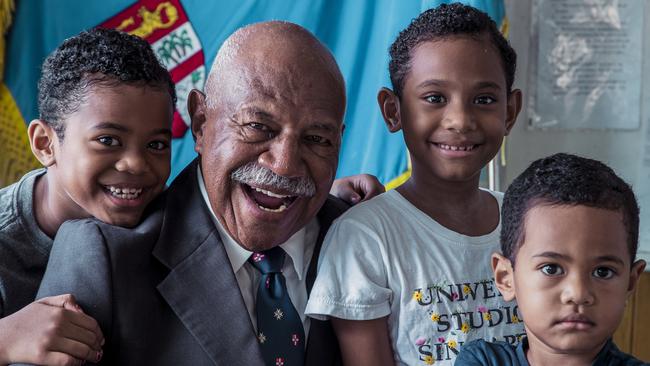
Even a poll in the rabidly pro-Bainimarama Fiji Sun earlier this month showed Mr Rabuka on 42.8 per cent, with Mr Bainimarama on 38.3 per cent, the fifth poll in a row to show Mr Rabuka as preferred prime minister.
Mr Rabuka has no doubt he will win, although he is sceptical about the Fiji Sun poll. “I would take that result with a pinch of salt because if your enemy tells you that you are doing OK, you better think about it,” he said.
Mr Rabuka quit the Social Democratic Liberal Party (SODELPA) earlier this year and launched the People’s Alliance Party in October. Other senior SODELPA figures, including the party’s deputy leader, Filomoni Vosarogo, have followed him.
If, as widely expected, Mr Rabuka forms a coalition with the traditionally Indo-Fijian dominated National Federation Party, he would be more than 10 per cent ahead of Mr Bainimarama’s ruling FijiFirst party.
That deal would also give him an Indo-Fijian running mate in NFP leader Biman Prasad to counter the government’s racially balanced team of Mr Bainimarama and Attorney-General Mr Aiyaz Sayed-Khaiyum.
Mr Rabuka acknowledges that such a combination would be essential to dispel longstanding antipathy by Indo-Fijians over his 1987 coups, which reasserted ethnic Fijian supremacy over Fijians of Indian descent.
“Yes, it gives them a comfort zone, because they will not have to come directly to us. But they have seen the co-operation I had with the National Federation Party and they will be banking on that continuing,” he said.
The man some Fijians still call “Rambo” has repeatedly expressed his regret over the coups, which led many Indo-Fijians to flee the country in a mass exodus of some of Fiji’s best and brightest. He says he is a changed man and that Fiji’s Indo-Fijian population have nothing to fear from him.
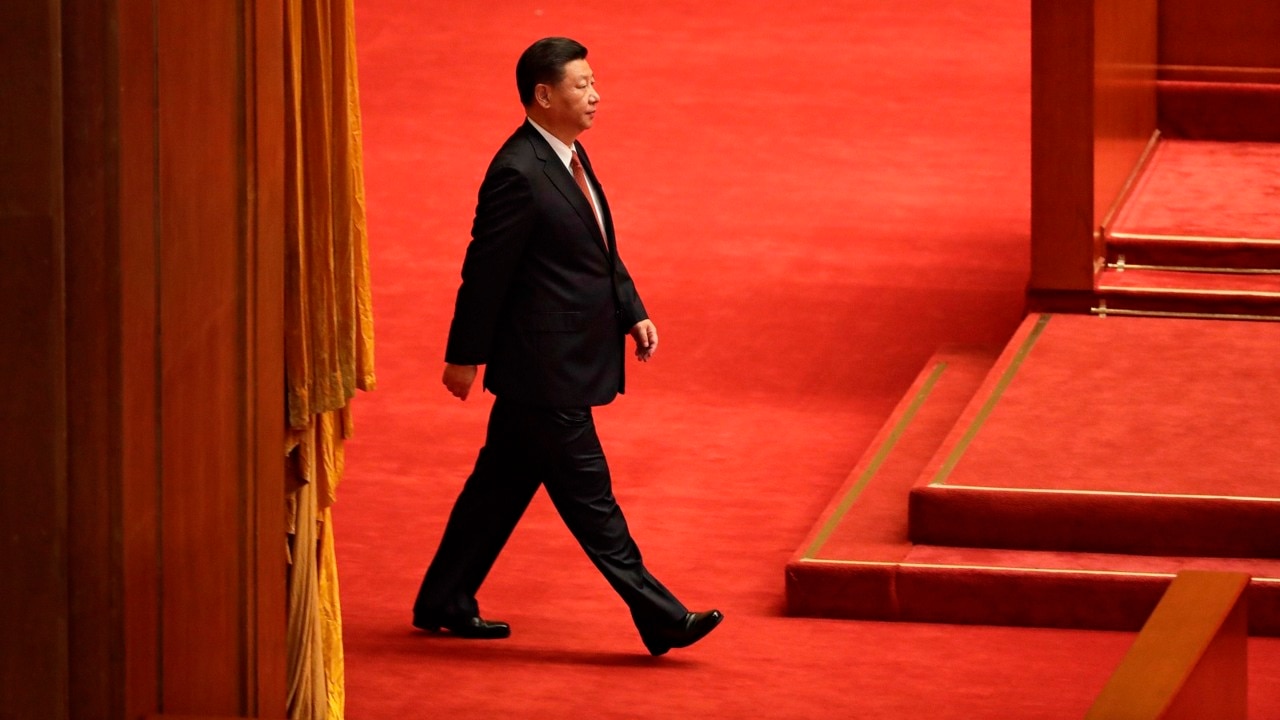
In an extended interview with The Australian, Mr Rabuka sought to minimise the impact of his actions on Fiji’s ethnic Indian population, thousands of whom left the country for good after the 1987 coup.
“There are still those who feel badly about those times and particularly the left-behind relatives of those who have taken advantage of the open-door policies that Australia, New Zealand, America and Canada had in the immediate post-coup era of 1987 and have made themselves very successful in their host countries,” he said.
“For me, it is not an issue. Some voters are still harping on the past. They have refused to see the development that Rabuka has taken since 1987,” he said, pointing to his role in the development of the 1997 constitution, which aimed to end discrimination between the races.
But the biggest obstacle confronting Mr Rabuka could come after the election.
Even if he wins office, Fiji’s military may not allow him to form a government.
Mr Rabuka believes Australia would offer him no support if the army intervened to keep Mr Bainimarama in office, particularly after the fallout from sanctions it placed on Fiji after the 1987 coups. “Australia probably is trying to still mend the fence, so they would not do anything to further antagonise the Pacific, particularly Fiji,” Mr Rabuka said.
The Morrison government has pushed hard to establish better relations with Fiji in response to Beijing’s growing influence, donating more than a million doses of Covid vaccine to the country. It’s not about to put those efforts at risk, Mr Rabuka believes.
“They have seen the effect of the embargoes of 1987 … and the opening up of new trading and aid partners in Asia, and what is happening now, with Australia trying to counter the presence of China. Australia will stand back and hope we resolve it ourselves,” he said.


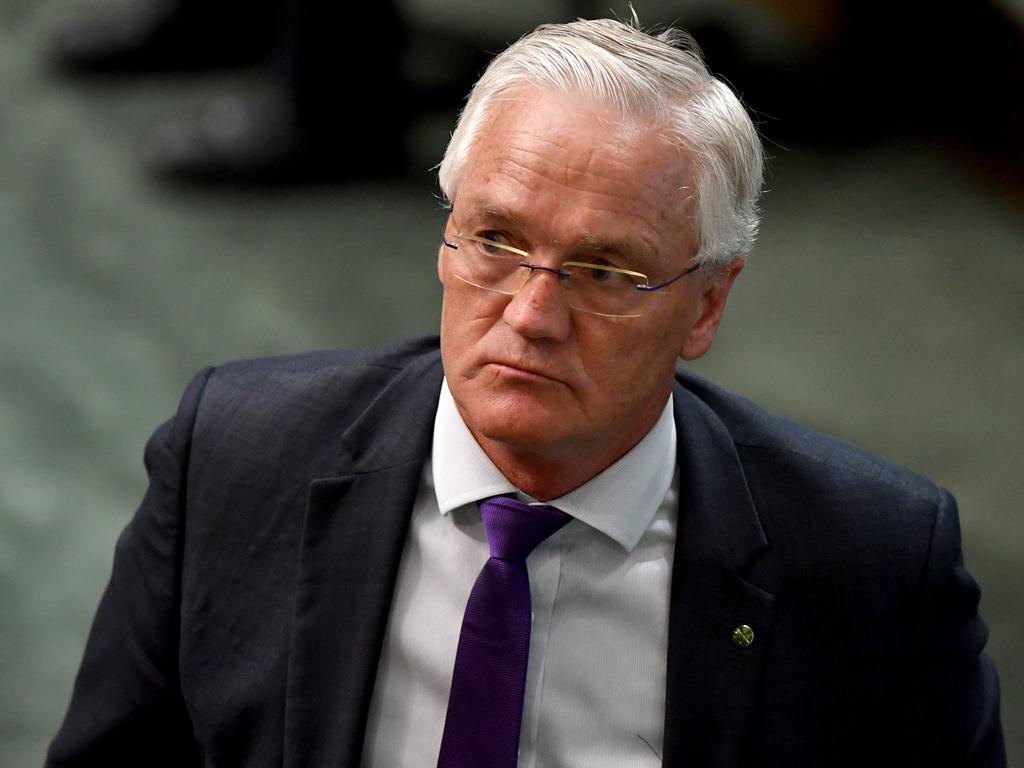

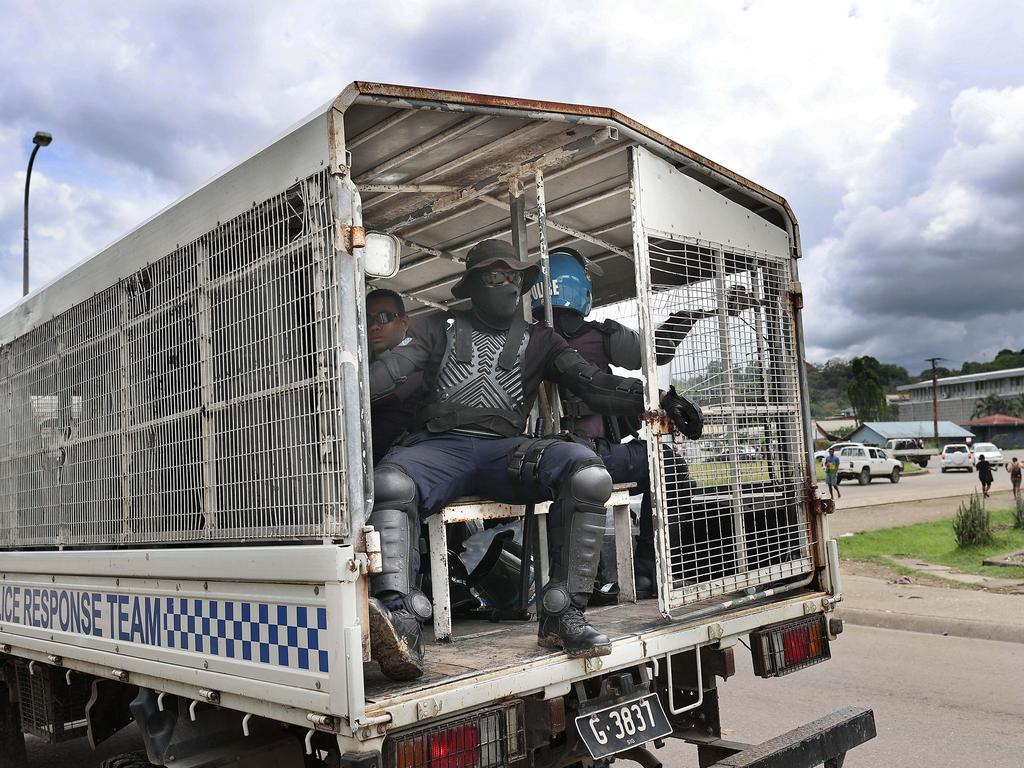



To join the conversation, please log in. Don't have an account? Register
Join the conversation, you are commenting as Logout